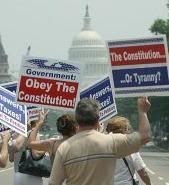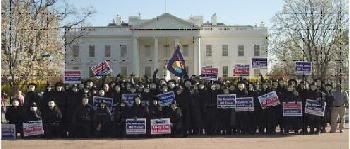Supreme Law Library On Territorial Jurisdiction

A: So, essentially, you're saying that it's legal not to pay taxes if you live outside the Federal Zone.
T: There is one interpretation of the law that is based upon a great deal of research, a great body of research, which shows that Title 26, the Internal Revenue Code, has a territorial jurisdiction that includes only the District of Columbia and the other territories and possessions that are under Congress's exclusive legislative jurisdiction. Those are places like the Northern Mariana Islands, Puerto Rico, Guam, and so on. In that zone, which I call the "Federal Zone", Congress is not restrained by the Constitution, so they can pass an excise tax that doesn't have to be uniform. They can also pass a direct tax that doesn't have to be apportioned. This is a precedent that was established in 1901 in a series of cases called "The Insular cases". The Supreme Court basically allowed Congress to set up a dual government system by telling Congress they weren't restrained by the Constitution inside the Federal Zone. But, outside the Federal Zone and inside the 50 States, they do have to honor the Constitution, which means that excise taxes on gasoline have to be uniform. The excise rate has to be the same in all 50 States of the Union.
Click here for more.












1 Comments:
Yeah, that's a really good source. A kook by the name of Paul Andrew Mitchell who files hundreds of lawsuits but then refuses to actually litigate any of them, and whose cumulative success rate is 0.000%. Even Lynne Meredith threw him out of her house as a nut.
But I could see how he could be a hero to the tax protestor movement, since they worship losers.
Post a Comment
Subscribe to Post Comments [Atom]
<< Home